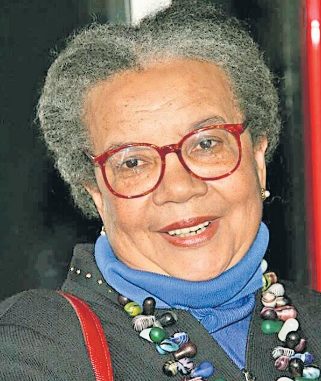[ad_1]
By Marian Wright Edelman
April 4th was the 54th anniversary of the assassination of our nation’s prophet of nonviolence, Dr. Martin Luther King, Jr. On the same day we received new warnings from international scientists that our world remains headed towards an environmental climate catastrophe, this date was a sad reminder that before his death, Dr. King presciently warned us about a metaphorical climate crisis that also threatened us all.
Shortly after President John F. Kennedy’s 1963 assassination, Dr. King wrote that it was time for our nation to do some soul-searching, and while the question “Who killed President Kennedy?” was important, answering the question “What killed President Kennedy?” was even more critical.
Dr. King said he believed “our late President was assassinated by a morally inclement climate”: “It is a climate filled with heavy torrents of false accusation, jostling winds of hatred, and raging storms of violence. It is a climate in which men cannot agree without being disagreeable and where they can express their dissent through violence or murder. It is the same climate that murdered Medgar Evers in Mississippi and six innocent Negro children in Birmingham, Alabama.”
Dr. King also noted that the undercurrents of hatred and violence that made up this morally inclement climate were fueled by our cultural embrace of guns: “By our readiness to allow arms to be purchased at will and fired at whim, by allowing our movie and television screens to teach our children that the hero is one who masters the art of shooting and the technique of killing, by allowing all these developments, we have created an atmosphere in which violence and hatred have become popular pastimes.”
He believed the same winds and violence that drove President Kennedy to his death would soon bring down Dr. King. Even decades later, we are still being ravaged daily by the same storms.
On April 3, six people were killed and 12 others injured in a shooting in downtown Sacramento, California, one of the worst mass shootings in the city’s history.
Afterwards, President Biden released a statement: “Today, America once again mourns for another community devastated by gun violence . . . Families are forever changed. Survivors are able to heal both visible and invisible wounds. . . We know that these are not the only lives that were affected by gun violence. We also mourn the families of those who are not featured in national news. But we must do more than mourn; we must act.”
Will we? President Biden went on to list steps Congress could take to curb gun violence right now: “Ban ghost guns. All gun sales should be subject to background checks. Ban assault weapons and high capacity magazines. Repeal gun manufacturers’ immunity from liability.”
We know what could be done. We also know how resistant Congress members are to doing anything. Meanwhile, gun violence is now the leading cause of death for children and teens ages 0-19 and is taking a growing number of lives—a fact that is sometimes lost in the middle of the pandemic. Violence continues to permeate our culture and communities. We are raising another generation in a morally bleak environment. We must do more than mourn. We must do more than just mourn.
In his eulogy at Dr. King’s funeral, Dr. Benjamin E. Mays said: “Here was a man who believed with all of his might that the pursuit of violence at any time is ethically and morally wrong; that God and the moral weight of the universe are against it; that violence is self-defeating; and that only love and forgiveness can break the vicious circle of revenge.
“He believed that nonviolence would prove effective in the abolition of injustice in politics, in economics, in education, and in race relations. He was also convinced that people could not be persuaded and pleaded to abate the inhumanity between man and man, but that they could be motivated to do so by dramatic nonviolent resistance. . . He believed that the nonviolent approach to solving social problems would ultimately prove to be redemptive.”
The world still needs leaders who share this belief.
Marian Wright Edelman, founder and president emerita of the Children’s Defense Fund (CDF), has been an advocate for disadvantaged Americans for her entire professional life.





